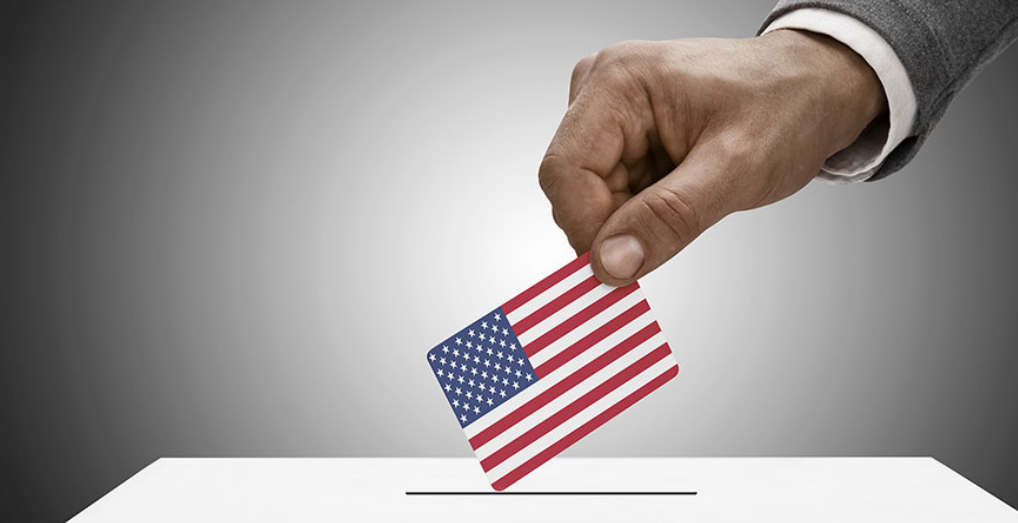As the U.S. approaches its upcoming elections, concerns about security, misinformation, and the integrity of the voting process continue to rise. Experts predict a highly competitive race, with three potential outcomes: results may not be finalized on November 5, political and legal disputes could extend over a week, and widespread disinformation may emerge during the vote counting process. These scenarios underscore the critical importance of safeguarding both the electoral infrastructure and public trust.
While Americans are consistently advised to rely on official government sources for election information, recent research reveals significant vulnerabilities in the system. Nearly 60% of U.S. county websites can be easily impersonated, and many of their government emails are unsecured, creating opportunities for fraudsters to mislead voters or steal sensitive personal information.
Vulnerabilities in County Election Websites
A detailed analysis conducted by Comparitech revealed notable weaknesses in U.S. county election websites. Key findings include:
-
41% of sites lacked basic email authentication, leaving voter communications vulnerable to spoofing.
-
57% were hosted on non-.gov domains, such as .com, .org, or .net, which can be registered by anyone.
Rebecca Moody, Head of Data Research at Comparitech, highlighted the dangers posed by these vulnerabilities. According to Moody, malicious actors could create fraudulent websites that closely mimic legitimate county portals. These sites could disseminate false election information or launch phishing campaigns targeting voters’ personal and financial data.
The absence of robust email authentication, specifically DMARC (Domain-based Message Authentication, Reporting, and Conformance), further increases the risk. Voters receiving emails from unauthenticated sources may be unknowingly exposed to phishing attacks, which can compromise sensitive voter registration information or even mislead citizens about where and how to vote.
The Strengths and Limitations of a Decentralized Election System
The U.S. election system is highly decentralized, which has historically helped protect against large-scale interference. By distributing responsibilities across thousands of counties and municipalities, the impact of a single attack or compromise is limited.
Richard Bird, Chief Security Officer at Traceable AI, explains that decentralization acts as a natural safeguard against widespread election tampering. Many criticisms of election security stem not from actual vulnerabilities but from a lack of understanding of this distributed structure.
Despite these assurances, public concern remains high. An NPR/PBS News/Marist poll revealed that many Americans, particularly Republicans, are still worried about voter fraud. This persists even as top officials, including CISA Director Jen Easterly, have repeatedly affirmed that the country’s election infrastructure is the most secure it has been since 2016.
The Real Threat: Disinformation Campaigns
While election systems themselves are robust, disinformation campaigns pose a growing threat. Malicious actors often begin by publishing a single false story, which spreads rapidly through social media networks before being addressed by traditional media.
The 2020 election highlighted these risks. The Department of Homeland Security identified roughly 50 fraudulent websites designed to mimic state and federal election domains. These sites, many targeting swing states, had the potential to mislead voters or collect sensitive information for malicious purposes.
The FBI has similarly warned that misinformation efforts may intensify in the days leading up to and following the election. Americans are urged to carefully verify election-related emails and websites before interacting with them.
Comparitech’s research also highlighted that 41% of voter contact emails from county websites lack DMARC authentication, and around 100 sites use generic email addresses like @gmail.com or @hotmail.com. These weaknesses make it easier for phishing campaigns to target voters and for disinformation to spread undetected.
Modernization: A Critical Necessity
Experts agree that while the decentralized system is a significant strength, modernization is urgently needed to combat evolving threats. Bird argues that decentralization alone is insufficient in preventing the spread of disinformation or mitigating cyber risks. Without technological updates, official assurances about election security may appear insufficient to the public, undermining trust in the democratic process.
Voter responsibility is equally crucial. Bird emphasizes that citizens must critically evaluate information before casting ballots. While attempts to tamper with vote counts are rare and largely ineffective, disinformation campaigns can foster doubt, fear, and division, eroding confidence in election results.
Moody suggests that a few practical changes could dramatically improve security. Mandating .gov domains for county election websites and enforcing DMARC email authentication would significantly reduce the risk of phishing attacks and fraudulent information. Voters would then have a reliable way to distinguish authentic sources from malicious imitators. Currently, reliance on search engines to locate election information increases the likelihood of encountering fake websites.
How Disinformation Spreads
The speed at which false narratives spread is staggering. Often, disinformation begins with a single misleading article or post and rapidly gains traction on social media platforms. Algorithms that prioritize engagement inadvertently amplify sensational or emotionally charged content, helping misinformation to “go viral.”
Once spread, these narratives can influence public perception and create confusion, even when election systems themselves remain secure. Social media has become a critical battlefield in the fight against disinformation, as threat actors exploit platforms to sow fear, doubt, and mistrust.
Recommendations for Voters and Authorities
To strengthen the integrity of the elections and restore public confidence, several steps are recommended:
-
Enforce .gov domains: All official county election websites should operate under a .gov domain to ensure authenticity.
-
Implement DMARC authentication: Emails from county election offices should be verified to prevent spoofing and phishing.
-
Public education campaigns: Voters should be trained to identify fraudulent websites, suspicious emails, and misinformation campaigns.
-
Centralized guidance for elections: Even within a decentralized system, a central advisory body could provide guidance and verification for county-level communications.
By following these steps, both election officials and voters can mitigate risks associated with phishing, impersonation, and the spread of false narratives.
The Bottom Line
As November 5 approaches, uncertainty remains regarding the timing of election results, potential legal challenges, and the impact of disinformation campaigns. While the U.S. decentralized election system provides inherent security and fairness, technological modernization is essential to maintain trust and confidence.
Key measures include the implementation of secure email systems, the exclusive use of .gov domains for official election communications, and public education to combat disinformation. Without these updates, voters may continue to be misled by fake websites and fraudulent emails, potentially undermining the democratic process.
Ultimately, safeguarding elections is a shared responsibility. While systems may be robust, voter awareness, technological updates, and proactive measures are critical in ensuring that American elections remain fair, secure, and trustworthy. By combining these strategies, the integrity of U.S. elections can be preserved in an increasingly complex digital landscape.




